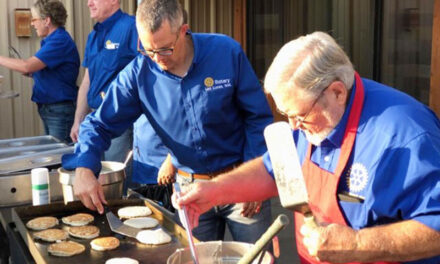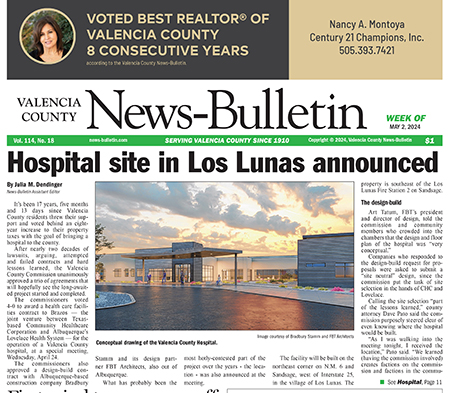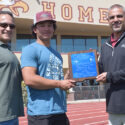The Valencia Soil and Water Conservation District is looking for funding for its conservation projects and the county extension program through a proposed 1/2 mill levy.
If passed, projects would include new cement irrigation ditches for farmers, along with needed irrigation pipes. For residents, there would be separate public trails in the bosque for walking, biking and horses.
The average cost of the mill levy, according to Dale Jones, vice chairman of the conservation district, would be “$10 a year — or two Big Macs,” he said at Tuesday’s county commission meeting.
But some citizens expressed opposition to the levy. “We are not in favor of this levy,” said Angelo Baca, president of the Farm and Livestock Bureau. “We will be giving a lot of power to people, who will dictate how these lands will be used,” Baca said.
The largest part of the mill levy revenue, $165,000, would be spent on farmland projects such as improving irrigation ditches and removing weeds, according to Jones’ report. However, Tomé area farmer J.C. Sanchez, said he already has cement-lined ditches, and along with other county farmers, has received federal money for improvements in the past.
“A lot of the services they are fixing to do are already in the Agriculture Department,” San-chez said. “I am not in favor of it.”
Baca and Sanchez said they fear that the money designated for irrigation improvements will go somewhere else, such as for trails, and said that farmers should not have to fund public trails.
Commissioner Gary Daves disagreed with Baca and Sanchez at the Tuesday meeting.
“I am a farmer and I am shocked that a farmer would be against this mill levy,” Daves said. “If you are worried that the money is going to be spent the wrong way, then you have an opportunity to run and be on the commission.
“To oppose this is to cut off your nose and face.”
The mill levy will be based on actual land value, and, for many, that means more than $10 annually. Sanchez owns more than 100 acres, and he said the mill levy if passed could cost him “$70 or more.”
The mill levy would be in effect for 10 years, before being up for renewal. Commissioner Frank Pando spoke out against the levy, because 4-H funding, set at $80,000 annually, would be phased out after two years, he said.
“My feeling is that they really need to identify where that money is going,” Pando said when interviewed later in the week. “Unfortunately right now, the county does not have the money” for funding the 4H program.
More than 1,180 county youth participate in the 4-H program, and due to budgetary deficits, the county did not match funds for the 4-H program this year.
“Let the people speak when they vote,” Pando said.
Residents must be landowners to vote for or against the mill levy, and both husbands and wives can vote.
Two polling locations, La Merced Elementary School and Los Lunas Elementary School, will be open from 7 a.m. to 7 p.m. on Tuesday, June 18, for the election.

















